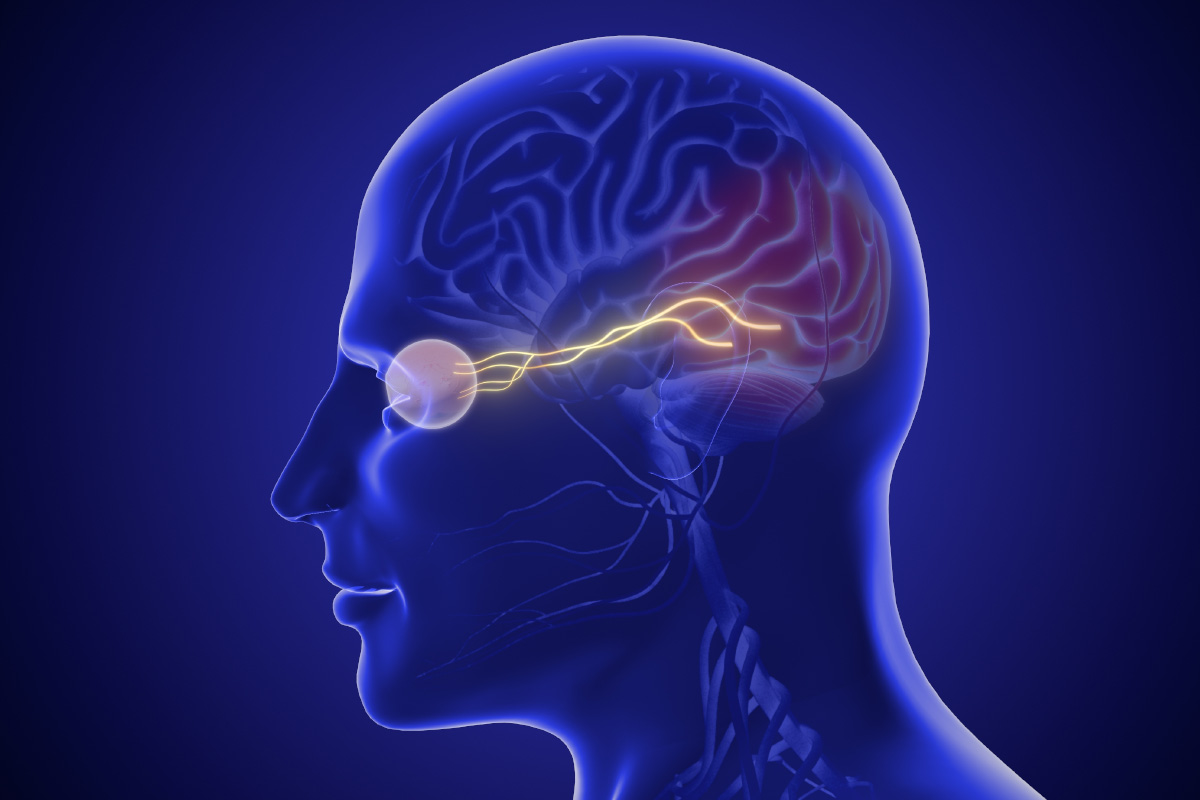Emerging research is finding links between dementia and eye conditions such as poor vision, nearsightedness, and cataracts, but the nature of their association remains unclear. A new study published in JAMA Network Open found that beyond an association, there is a possible causal relationship between two conditions.
Specifically, researchers found that cataracts may close to double the risk of vascular dementia. They also discovered possible brain pathways linking the two.
Cataracts occur when the lens in the eye gets cloudy, obstructing vision.
Willa Brenowitz, the study’s senior author and an assistant professor in the Department of Epidemiology and Biostatistics at the University of California (UC)–San Francisco, told The Epoch Times that the study provides some of the most substantial evidence to date that cataracts are a risk factor for dementia. However, well-designed randomized, controlled trials are needed to prove causation.
Possible Causal Links
The researchers conducted an
observational study to examine the associations between the conditions and supplemented it with a genetic analysis to determine causal relationships. They analyzed health data from more than 308,000 UK Biobank participants to assess causal associations between eye problems, such as cataracts, nearsightedness, and poor visual acuity, and neurological conditions, such as brain structure changes, Alzheimer’s disease, and related dementias.
Corresponding author Erin Ferguson, an epidemiology and translational science doctoral candidate at UC–San Francisco, told The Epoch Times that while extensive observational research has established an association between visual impairment and dementia, it remains unclear whether this association reflects an actual effect or is potentially because of bias.
Ferguson said that causality must be established before considering clinical or public health interventions.
“Before we make any clinical recommendations for patients, we need to be more sure that eye conditions, like cataracts, cause dementia,” she said.
Their observational analyses found several associations, including the following:
- Cataracts were associated with an increased risk of all-cause dementia, Alzheimer’s, and vascular dementia.
- Poor visual acuity was associated with an increased risk of all-cause dementia.
- Diabetic retinopathy was associated with a higher risk of all-cause dementia.
The genetic analysis also found a potential causation between a genetic predisposition to cataracts and an increased risk of vascular dementia. In addition, researchers found possible biological pathways that might explain these connections.
“We found that cataracts were associated with reductions in total brain volume and gray matter volume. This degeneration was not typical of Alzheimer’s disease-related degeneration,” Ferguson said.
Brenowitz said that this also suggests that cataracts do not contribute to Alzheimer’s disease through the usual pathways seen in Alzheimer’s disease, but they could be related to overall brain shrinkage or issues affecting blood vessels.
In addition to reduced brain and gray matter volume, the study found that some white matter areas appeared brighter on scans, which may indicate damage to the brain’s small blood vessels. The authors theorized that vascular mechanisms may link cataracts to dementia.
The paper did not explain why cataracts may contribute to reduced brain volume and gray matter. However, reduced input to the brain because of declining vision and subsequent loss because of cataracts may contribute to cognitive decline and, ultimately, brain shrinkage.
Improving Vision May Reduce Dementia Risk
The potentially causal relationship suggested by the study is supported by existing literature, particularly
studies showing that cataract surgery can reduce dementia risk.
“This [finding] may mean that cataract extraction or cataract prevention measures may be tools to mitigate dementia risk, when applicable,” Ferguson said.
The researchers hope that the study’s findings will serve as a starting point for further research in this area and lead to the development of specific clinical guidelines for patients.
However, Ferguson said that before any patient recommendations can be given in this area, future research must identify which specific groups of patients might benefit most from these recommendations. Since the study involved mainly white people, more research is needed to confirm these findings in more-diverse populations.
Dr. Joshua Ehrlich, an associate professor at the University of Michigan, told The Epoch Times, “The growing body of work in this field does suggest the potential benefits of optimizing vision in later life, not just to improve how we see the world, but also to affect other key aspects of aging, including cognitive health.”
Ehrlich was not involved in the study but has authored related research on visual impairments as a modifiable risk factor for dementia.
Brenowitz agreed with Ehrlich’s comment. She advised older adults and their clinicians to consider regular vision checks, given the importance of good vision health in quality of life, independence, and potentially other health factors.















